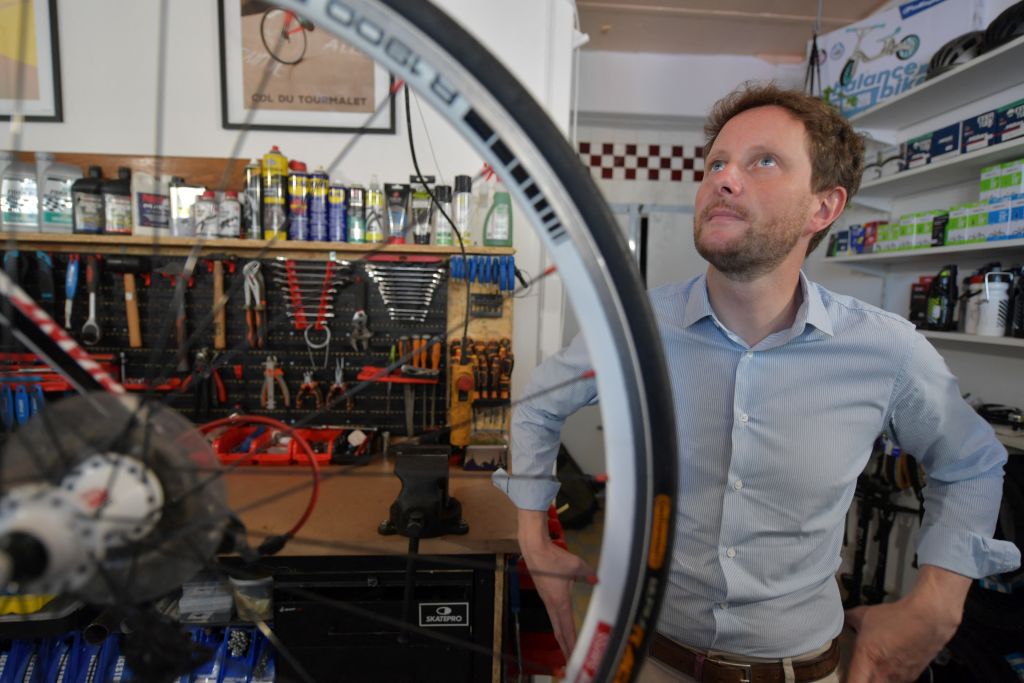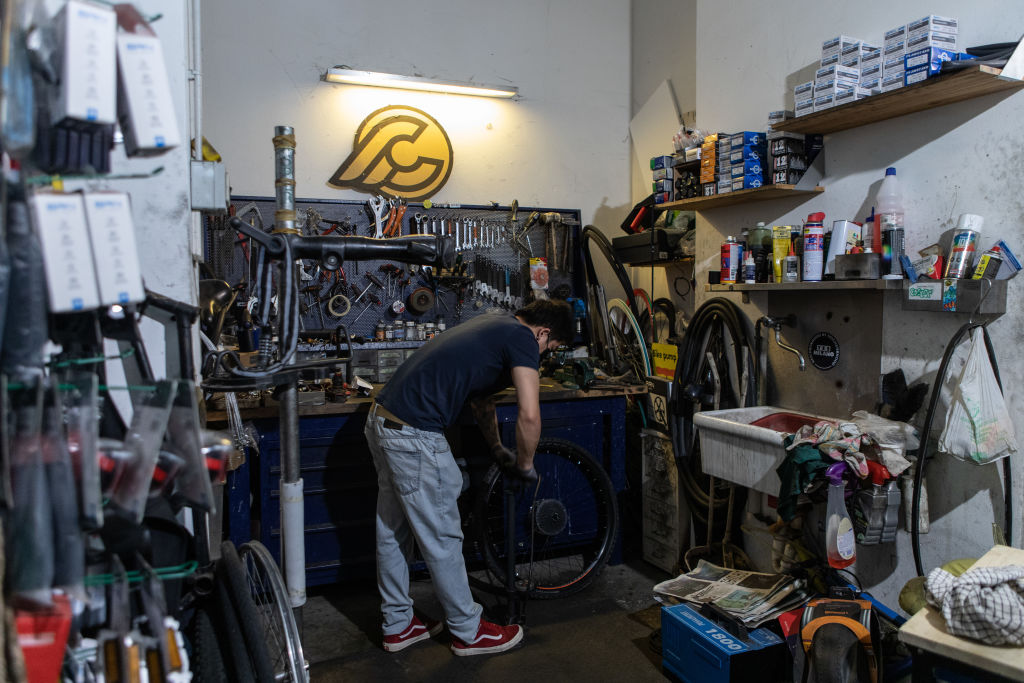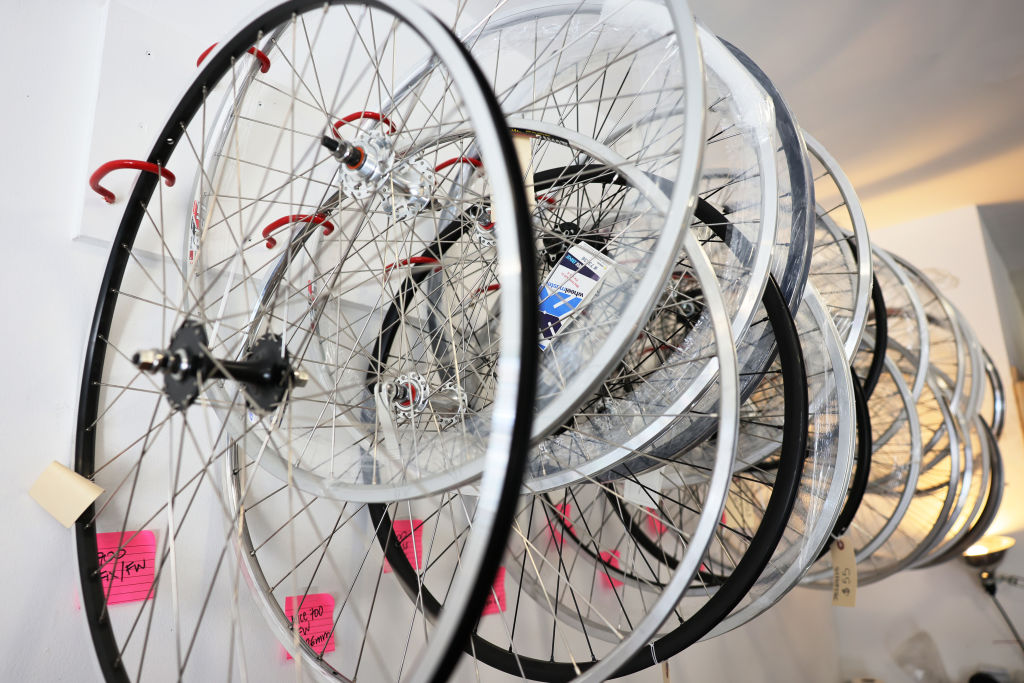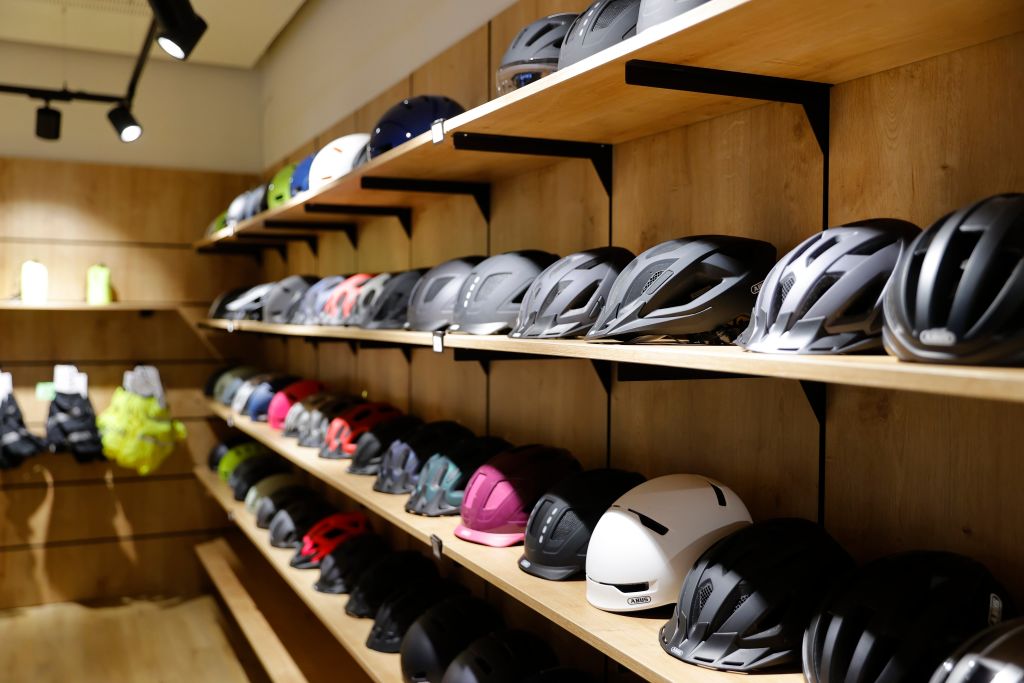Are we heading for a cost of cycling crisis?
With inflation running in the double digits and the bike industry still recovering from the effects of the pandemic, what does the future hold for cycling consumers?


The latest race content, interviews, features, reviews and expert buying guides, direct to your inbox!
You are now subscribed
Your newsletter sign-up was successful
This feature originally appeared in the 22 September 2022 issue of Cycling Weekly.
If you are one of those lucky people with a level of disposable income as the cost of living crisis fast approaches, a cursory look at a bike retailer will tell you that shopping for bikes and its related accoutrements is very possible, unlike the deep days of lockdown. Sure, it might take a while longer to get hold of something specific, like a Shimano 105 cassette - I’m speaking from experience here - most things, from the customer’s point of view, anyway, are readily available.
Now the pandemic may not be literally over, with Covid still a serious issue for many around the world, but for most life has returned to some kind of normality. There are no legal restrictions, mask wearing is optional, and some even have returned to the office. As we press forward into the next crisis, however, for some in the bike industry things are still proving difficult.
This is not all. With the hike in energy bills - and until very recently the lack of concrete government action on it - there are fears that people might be priced out of cycling. Add to that uncertainty in south east Asia, where many bike parts come from, and the industry is not quite out of the woods yet.
Covid doldrums
There was a time, not long ago of course, where demand for all things cycling suddenly outstripped supply, and there was a full-blown crisis in the supply chain. With raw material shortages occurring too, plus restrictions on factories around the world operating, it was difficult to get things to customers. The people who experienced that the most were the distributors, the middle men between the brands you know, and the bike shops that you frequent.
Dominic Langan, the CEO of one of the giants, Madison, tells Cycling Weekly about how they managed through the worst of it.
“At one point we were having to ration stocks out to make sure workshops got what they needed rather than customers buying everything up,” he explains. “Across most of our portfolio it's back to normal, and we have good stock.
The latest race content, interviews, features, reviews and expert buying guides, direct to your inbox!
“We limited how much stock anyone could buy in one calendar month. They could ring up if they had an exceptional circumstance. Our big worry was not being able to get repair products to the businesses. The demand outstripped the numbers we were traditionally used to. So we were just trying to make sure it was fair and equitably shared, to keep workshops going.”
Echoing this is Richard Mardle, brand director of Saddleback, another of these companies that will front the business for a brand in the UK, delivering to shops, both physical and online.
“There was a big uptake that outstripped anything produced at that point,” he says. “There was this real feed for bringing in as much stock as possible, we were running quite a skeleton crew, and that really led to a big driver for a hand to mouth supply chain. We left a lot of business off the table despite the demand being there because we couldn't supply it.”
Therefore while the boom in cycling’s popularity was good for almost everyone, from an ecological perspective as much as anyone, it created a market that the industry could not keep up with, and one that it is still trying to understand in late 2022.

Don't mention Brexit
According to the latest National Travel Survey, published at the end of August by the Department for Transport, cycling has now returned to pre-pandemic levels. The average person in England made just 2% of all their trips by cycling in 2021, and the average number of trips made by bicycle dropped to 15 per person last year, down from 20 in 2020.
Langan saw this happen in real time: “The decline started July last year really, when the 'Boris freedom day' or whatever you call it happened. I think that's when people spent money on different things, or they weren't on furlough anymore. It took a while to be noticeable, but I think that's when it started. The real time demand started dropping around that point.”
This has offered the supply chain the chance to reset a little, and to take stock of where they are at. However, the two distributors Cycling Weekly spoke to had slightly different responses to the idea of things being good again.
“It has improved massively from where we were a year ago,” Langan from Madison says. “Most lead times are pretty much getting back to what they were pre pandemic, although there are some things that you struggle to get hold of, Shimano still has quite long lead times."
“Is it better now? No, is the easy answer,” is Mardle from Saddleback’s counterpoint. “There are certainly some improvements. Container costs have started to come down, but not at the rate we would like to see them return to normal. Companies have become a lot more aware on how to move products in and out of Europe, so that helps. On raw materials, and a lot of products, it is still pretty crazy. People will promise you stuff, but delivery times are not something they can guarantee. That's where there's a catch at the minute, it's a lottery.”
The lottery has been made harder by other changes that the bike industry has had to weather in the last couple of years, and new crises that have appeared out of nowhere.
Brexit is a sore point. Uncertainty over the UK economy has seen the pound drop against currencies around the world, while newly introduced customs charges have affected businesses, especially distributors.
If you are a German customer to a UK based retailer like Wiggle or Sigma Sports, you might now think twice about buying from them when there might be more economical alternatives in your own country now. Brexit has changed the landscape for many businesses.
“Brexit snuck up on us and caused a huge problem,” Mardle explains. “This was customs predominantly, and then we started to see container pricing go up massively. With Brexit, everything had a duty attached to it, so a deal was not really a deal.”
While shipping prices have started to come down, although they have not returned to normal, it is currency that is causing problems. Langan says: “The pound is at a historic low. It's crazy. That has an impact.”
There is another small worry for the industry, and that is continuing tensions in south east Asia. A lot of what keeps your bike going comes out of China or Taiwan, and the idea of a conflict is a stark one to the distributors.
“There are products coming from other parts of the world obviously, but if Taiwan was suddenly in a conflict, then it would have a massive impact on supply for our industry,” Langan explains. “It's not something I'm freaking out about, though. It's something as a business we're looking at, reducing reliance on China or Taiwan.”

Cost of living crisis
Along with all the other issues, and a fall in cycling levels anyway, there are fears that people will stop spending money on cycling, or possibly already have, over concerns about the cost of living. Inflation has climbed, and while there might now be a government plan for how to deal with rocketing energy costs, consumers might just hold onto their money for a bit longer rather than splashing out on that new bike.
“There's a lot of fear over what winter looks like,” Mardle says, which might put people off buying new cycling things. Langan has seen it in action already: “People are only spending, and shops are the same, on exactly what they need to buy. They're not speculating. Shops have a lot of stock already, and they're keeping it tight and cautious.”
However, there might just be an advantage to the cost of living crisis for the bike industry, if this can be counted as a positive. There is also the fact that cycling still has a long way to go in the UK, in terms of participation and culture and the rest of it.
“Historically, we normally do pretty well in a downturn,” Langan says. “The bike industry does pretty well in a downward economy. The only thing that's really different now is the amount of people working from home. It is noticeable on some days how quieter places are. Medium to long term, however, I feel pretty optimistic as we still have a long way to go as a country in terms of cycling, to get close to what other countries do as Europe. That's positive.
“Depending on what happens, there might be a tendency to go back to work more. We're in a transitional stage after Covid. Another six months down the line and it could be a completely different landscape again.”
If you have the money, or the will, or the need, bikes and their accessories are now reasonably easy to purchase once again. The worry now is that customers might not have any of these three in the next year.
With the pound crashing this past week, it is already more expensive for customers to buy products from abroad; conversely, it might be cheaper for customers around the world to buy things from the UK.

Bargain time for entry level bikes
There are some things that are reasonably easy to get hold of at the moment, despite variable lead times on all sorts of products.
Richard Mardle from Saddleback explains: “Sub-£1,500 bikes are something that at the moment brands have a lot of; anything above that, brands don’t have enough stock right now. Low-end consumers are not spending at the same rate.”
So if you are someone looking to purchase your first bike, or get a relatively cheap model, you should be alright, and you might even find some deals on offer, as retailers try to get rid of stock brought in when demand was still exceedingly high.
“The market has really dropped away now, retailers are giving huge discounts, and people are going to fight for their customers, even if they’re not making a lot of money from it,” Mardle says.
“If a consumer is hungry to spend and they’re not uber-picky, there are some great deals out there, that’s for sure, and that’s because people aren’t making a lot of money so people are just trying to keep the whole system as fluid as it can be with the stock we’ve got right now.”

Adam is Cycling Weekly’s news editor – his greatest love is road racing but as long as he is cycling, he's happy. Before joining CW in 2021 he spent two years writing for Procycling. He's usually out and about on the roads of Bristol and its surrounds.
Before cycling took over his professional life, he covered ecclesiastical matters at the world’s largest Anglican newspaper and politics at Business Insider. Don't ask how that is related to riding bikes.